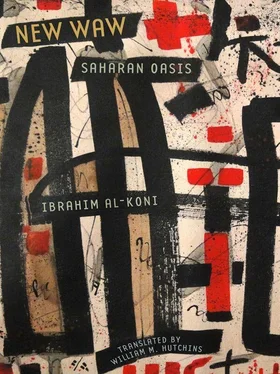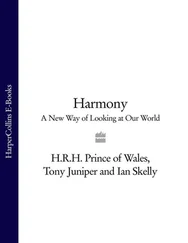The plains that lie between the gaps of the wadis were also teeming with plants. The fragrance of the flowers rose in the air and greeted the men in the valleys with a scent in which retem blossoms dominated. He drew the edges of his veil away from his nostrils to inhale the rich fragrance, which left him feeling tipsy. Tears came to his eyes, and he stumbled. So he quickly pulled the veil over his nose again. In the plains, which were carpeted with grass, it wasn’t just flocks of birds that were circulating — herds of gazelles were grazing everywhere, racing across the grass. They plucked flower petals deliberately and lifted their heads, which were marked with white, to gaze into the distance while enjoying themselves and chewing. At the edge of the plain a wild goat leaned forward, bowed his two long, symmetrical horns, and began to scrape the earth with his hoof. He pawed away a tuft that rose some inches above the plain’s surface and extended his striped muzzle to pull out a truffle. He gnawed off the top half and left the rest still in the belly of the earth. The guide called out, “I bet we’ll find truffles too!”
But the scent of the truffles had found its way to his nose even before he heard the leader’s call. He drew his veil away from his nostrils again. He wailed like a man possessed and then released a long, painful moan that resembled a dying gasp from an ailing chest afflicted with death’s intoxication. He raced across the earth, dug out a truffle with his finger, raised it to his nose, and released another moan that was even longer than the first.
Birds hid their nests among fasis plants, bird’s-foot trefoil, in order to conceal their fledglings from the hands of wanderers. From childhood experience he had learned that birds do not merely use this strategy to hide their nestlings but also to protect the nest itself. If a nest is discovered and the bird realizes that a hand has touched it, he will abandon it forever and fly far away to search for a location that no creature’s hand can reach. In his childhood he had discovered that birds do not merely sacrifice empty nests but abandon their eggs as well if they find that human hands have touched them. A bird would stop singing and circle the nest for days during this mourning period. Then he would depart to another land where there is no trace of our filthy species.
5
In the vastness of these plains stood mounds of stones and many tombs of the forefathers. The leader provided good news that his tongue did not defile: “I promise we’ll reach the homeland shortly.”
He asked reverently, “Is the existence of these tombs of the ancients a sign we are nearing the homeland?”
The leader replied, “From now on you will walk through endless fields of tombs, because you know the Western Hammada is the first desert that the ancient ancestors settled when they arrived from the islands of the ocean, fleeing from flooding.”
He admitted, “This is actually what we have heard from the jurists. But this is one of three narratives, Master, because the first one says that they entered the desert when they obeyed an order that banned them from their first homeland in the sky, the second affirms that they approached the desert after losing Waw, and the third says that they came from the islands of the sea after the ocean swallowed their cities, which were suspended between bridges. So which narrative should we believe, Master?”
The guide replied, “What matters here is the symbolism, not the stories. Notice that all the narratives concur in the existence of a first homeland for the first generations prior to all other homelands. They also agree on the existence of some heavenly anger or curse that drove them from their venerable homeland. Then they roamed the earth, and yearning for the motherland became a malady for which they have never discovered an antidote since that day.”
They traversed another distance where the grass was more extensive, the trees were denser, and the flowers released their heartrending fragrance into the air. In the plains the gazelles bounded, and in the tracts lying between the plains and the wadis, lizards loitered. At the limits of the hills, herds of Barbary sheep accosted them.
He was amazed and observed, “I don’t understand how the people of the Eastern Hammada can tolerate suffering from barrenness and perish from drought when near them lie gardens that would suffice to feed dozens of tribes.”
The guide replied, “The first secret is hidden there. The nomad found himself traveling through the Eastern Hammada and relished that life, assuming that he was walking through the promised paradise. He persuaded himself, relying on habit, that he would definitely perish should he dare to leave for the West, because his foot had never trod the land of the Western Hammada and he had learned its characteristics only from the tales of travelers, the whispers of the Spirit World’s inhabitants, and the mouths of lying messengers. So how can you rescue a community that refuses to attempt an exodus? How can people achieve salvation if they refuse to look farther than their noses? This reminds me of a slave I wished to honor. So I decided to manumit him. Do you know how he responded to this gift? He threw himself at my feet and kissed my sandal as he wept. He said that freedom is a burden that wasn’t created for someone accustomed to servitude. He did not know what he would do with himself if he left my household. He finally said he would be forced to hang himself if I refused to change my mind.”
He answered disapprovingly, “How horrible, Master! Now I have grasped why our tribe is marked for extinction.”
The guide seconded this thought: “You’re right. A tribe of this character deserves nothing but extinction!”
6
Bold streams flowed through the next valleys. Although the water had receded, the clay banks it left were still wet, and their feet sank into the quivering muck. They followed paths that were stones set in the slopes. Then they climbed terraces that soon spread out into plains that were carpeted with patches embellished by colorful flowers. In the open air, birds called back and forth with songs like young women’s trills. Herds of gazelles trampled the body of the earth with their hooves as they bolted away, and the tombs of the ancient ancestors kept the two men company on swordlike heights and the crests of hills until these stopped them when they confronted the summit where the spring originated.
The guide said, “You should drink from the spring’s waters if you wish to liberate yourself from the ancient load.”
He asked in astonishment, “To what load is my master referring?”
The leader replied, “Didn’t you tell me you long to free yourself from the bonds of the intellect?”
He responded, “I don’t deny that this has frequently tempted me, but merely as a passing whisper, because we are a people who do not free ourselves of anything easily. We consider liberation from the intellect, Master, to be a harsh punishment.”
The leader cried out, “Here you resemble the people of the Eastern Hammada and cling to the shackles of servitude!”
He began to tremble and protested, “We consider the intellect to be life-sustaining — possibly because we’ve never experienced life without an intellect.”
The leader said, “Here you have won the key to the secret. All that remains is for you to take another step to open the door.”
He was shaking more violently and pleaded, “But forgetfulness is grim, Master. Dementia is grimmer than extinction.”
The leader approached him, leaned toward his ear, and asked, “Would it harm you to forget the people and terrors of the Eastern Hammada? Would it harm you to move from that barren land to live in a homeland that doesn’t acknowledge space because it has liberated itself from time’s rule?”
Читать дальше












